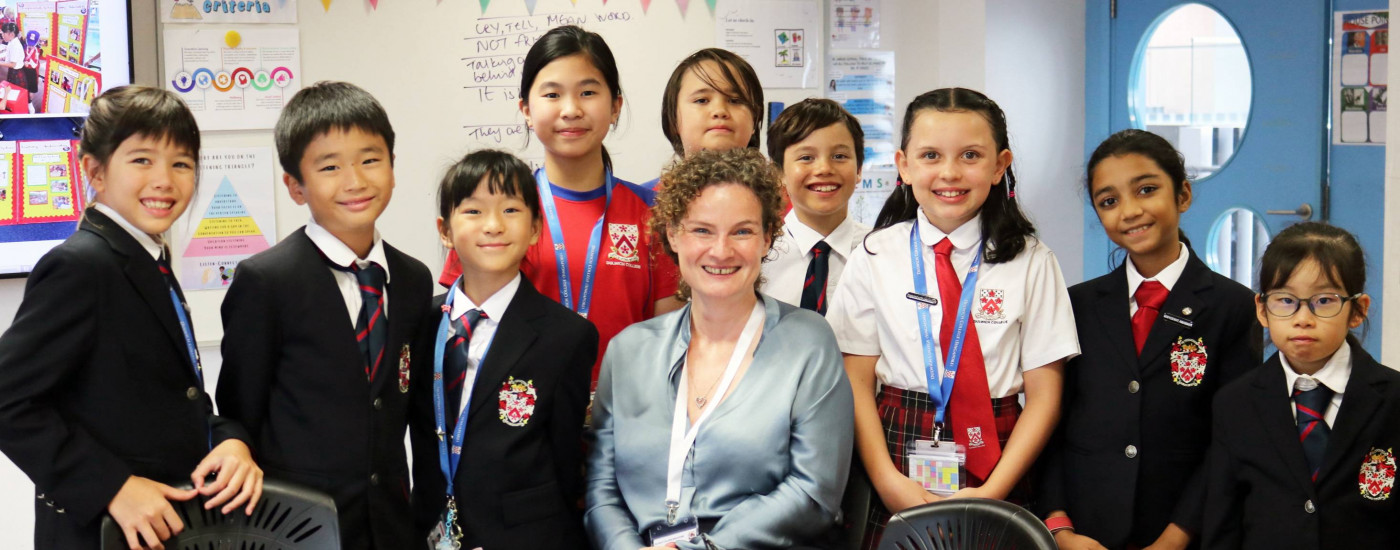The Continued Growth of our Compassionate Systems Framework

Last week the College was delighted to host one of the leading academics in the Compassionate Systems Framework from MIT (Massachusetts Institute of Technology). Professor Mette Miriam Boelle (Böll), a biologist with a specialisation in the evolution of complex social systems, mammalian play behaviour, and philosophy of nature. She holds a Ph.D. in organisational ethology from Aarhus University's Center for Semiotics and has additional qualifications in contemplative leadership and the history and philosophy of science. Her work primarily involves researching the transmission of emotions and feelings in social relations and how these influence larger human systems, particularly in the context of education.
In 2018, Boell joined MIT as a Visiting Research Scientist, working with The Abdul Latif Jameel World Education Lab (J-WEL) to transform global education through research and practice. In 2022, she co-founded The MIT Systems Awareness Lab with Peter Senge, serving as its Research Director. The Lab aims to study and influence compassionate systems change in education and develop the Systems Awareness methodology.
Our College in Singapore is pioneering the development of this work in schools and is the leading centre of excellence in the region. We were delighted to host Professor Boell who enjoyed observing Junior School lessons, focusing on the current developments in Compassionate Systems. She was also part of strategic planning sessions with our Junior School Compassionate Systems Leaders. Professor Boell also participated in a discussion at EiM (Education in Motion) Headquarters, sharing insights about partnerships and ongoing work at the Centre, and exploring potential collaborations. This was followed by a visit to the DUCKS Forest School, providing a first-hand look at compassionate systems in action. She also engaged in a College Leadership Team discussion and a presentation to all interested staff, where she discussed the growth and future aspirations of the program, followed by a Q&A session. This visit not only solidified the collaboration between Professor Boell and Dulwich College (Singapore), but also illuminated the practical application of compassionate systems in education, inspiring educators, and students alike.
The Compassionate Systems Framework itself is now embedded in our programme in the Junior School and DUCKS and rapidly growing in the Senior School. We now offer regular parent workshops to explain the framework, but I thought I would also take this opportunity to describe it to you here.
The framework combines two key components. The first is a series of system thinking tools that can be used in any curriculum context to help students understand the deep interconnectedness of the issues we discuss in the classrooms. These tools also structure the learning and encourage a conceptual understanding of the issue being studied; they are used to explore complex issues like the United Nations Sustainable Development Goals which are the focus of many areas of our curriculum.
One example of a system thinking tool is the connection circle; a graphic organiser which shows connections between different factors or elements of a complex system. The arrows within the circle identify cause-and-effect relationships. The tool can be developed to include feedback loops and other more complex relationships. The connection circle allows students to identify and link together a number of factors that are relevant to a question or problem expanding their awareness of connections within systems. It enables them to understand making one decision different to their own. By understanding the intended and unintended impact of their own and other’s actions they can think more compassionately about the choices they make.
The second component is a set of practices and approaches which work to develop emotional literacy with the students and teachers. Students gain a deep understanding of some of the world’s most challenging issues and gain the empathy to appreciate the human connectedness in these issues whilst not becoming psychologically overwhelmed by the challenges they bring. The learning skills acquired to understand these complex issues allow our students to understand and approach other complex understandings in all areas of their learning as they progress.
As an example, some of our younger students have been embracing their journey of learning with the Compassionate System’s Framework to really explore their understanding of themselves and the world around them. Many of our class groups have decided on their own personalised emotional daily check-in system allowing them to examine their emotions and the importance of different cause-and-effect factors that influence human behaviour. They have been paying attention to the various ways they and their peers ‘show up’ for the school day. This helps to normalise the different states of emotions and opens deeper communication channels within our classrooms. The students are beginning to understand the complexity of human relationships. It is important to recognise this to explore the different internal and external influential factors on human behaviour. Through wellbeing lessons, our students have been introduced to the concept of Generative Social Fields. This is a Compassionate Systems concept that provides the children with a visual guide to discover their range of emotions and how these may alter with changing circumstances.
The maintenance of a cultural change project like this is a real challenge for most institutions, and we are using one of our own compassionate systems tools the ‘mandala for systems change’ to help us with that. Like any mandala, it is an organising structure for a complex idea. The idea is deep systemic change, and the mandala identifies four key areas of action required for a project like this to be successful. We are still developing these amazing ideas, but the impact on our students and teachers is already so clear that we will remain passionate advocates for this student-focused project. I would like to formally acknowledge the work of Peter Senge, Mette Boell and the IB organisation, in particular, Jane Drake, for developing the work and designing the tools and the mandala referenced in this article at the Centre of Systems Awareness at MIT. They are an extraordinary group of people working to build a better world, and I heartily recommend their work.






